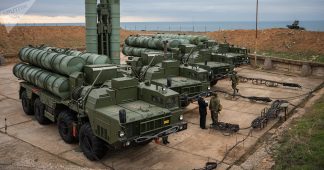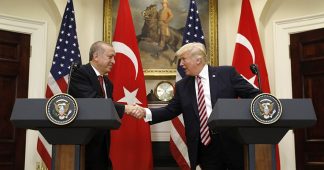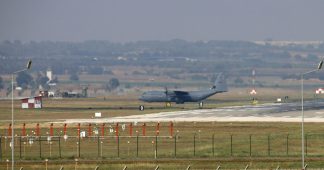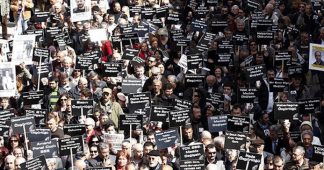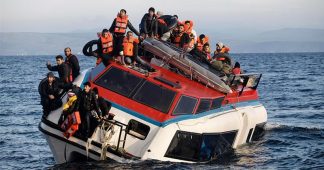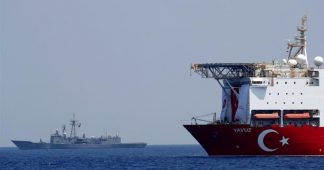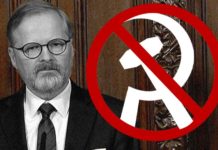By Andrei Isaev
Dec. 18, 2019
In the opinion of Turkish authorities, Turkey plays a variety of roles on the foreign policy landscape: it is a major defender of Muslims around the world – from Palestine to Burma; a peacemaker who is destined to put an end to the war in Syria and defeat terrorists of every description; the savior of millions of refugees and a global leader in providing humanitarian assistance to all those who need it – in the Middle East, in Africa and in other regions. A statement to this effect was made by President of the Republic of Turkey at the 74th session of the UN General Assembly on September 25 this year.
For obvious reasons, the Turkish leader refrained from dwelling on the country’s foreign policy challenges at such a top-level forum. However, these issues are being discussed at length by the country’s expert community. Most commentators proceed from the dichotomy of the “Rising East” and “Decaying West” (as formulated by the Russian version of the website of the Ankara Center for the Study of Crisis and Politics (ANKASAM)), analyzing the present and future of Turkey through the prism of global developments.
According to Hürriyet columnist Mustafa Aydin, the main existential problem “stays the same – to come to a common strategic understanding of the role of Turkey in the world and in the region.” A country that boasts an important geopolitical position plays a key role in the battle for setting up a new international system, therefore: “The one that will win Turkey over (A.I.) will win this battle. But Turkey itself has not yet made a choice, “because the international situation is still favorable for Ankara to pursue a balancing policy,” – Aydin concludes.
For now, he argues, there have sprung up strong alternatives to Westernism, such as “Eurasianism, Pan-Asianism and Turkic-Islamic unity.” Simultaneously, the expert calls for following the example of Russia, which only just preserved its unity after the collapse of the USSR. According to the author’s wording, Russia succeeded in “surviving” the crisis thanks to the development and implementation of the Doctrine of the Near Abroad. “After that, Russia was able to go a long way covering a huge distance towards becoming first a regional, and then a global power.” This is a meaningful phrase: it contains an allusion to the doctrine of “neo-Ottomanism”, on the one hand, and an unwillingness to acknowledge its apparent inconsistency at present.
At the next stage, Aydin says, “Turkey should become one of the poles of the multi-polar world and represent, first of all, the Turkic-Islamic world, then all the oppressed, and, finally – the entire human race!”
Mehmet Seyfettin Erol, President of the above mentioned ANKASAM, largely thinks along the same lines as Aydin. In an article published on the organization’s website, he argues that Turkey, “by making room for maneuver”, is trying no less than building a “Third Center of Power”, groping for a “Third Way” which, if followed, could “bridge the gap between the East and the West. ”
But this is in the future. In the meantime, Ankara’s policy of maneuvering between the two centers of power (the West – the USA, on the one hand, the East – Russia and China, on the other), is assessed, on the whole, quite positively. For instance, while mulling Turkey’s prospects on the global scene, an expert with the Politics, Economics and Public Relations Research Center (SETA), Kemal Inat, says on SETA’s website that what creates a fundamental problem is the West’s opposition to Turkey’s desire to be a global player. In this regard, the author warns against striking close alliances with stronger actors, because such alliances, in his opinion, inevitably lead to a “patron-client” relationship. The problem with alliances, whether with the West, Russia or China, is that the “senior” ally will try to restrict Turkey’s freedom of action. So “there is no need to move away from one ally in order to find yourself dependent on another,” – Inat advises.
Speaking about the specific foreign policy challenges the country is faced with experts usually mention the same points. Presented by former diplomat and now opposition MP, Faruk Logoglu, the “problem list” looks as follows:
– The Republic of Cyprus, by granting foreign companies the right to prospect for oil and gas, has breached the rights of both the Turkish Republic of Northern Cyprus and Turkey proper.
– Relations with Greece are still fraught with yet another aggravation, up to an armed conflict in the Aegean Sea.
– The Kurdish issue has assumed an international dimension. While Turkey is dragging its feet over settling the issue within the country, until it has developed a “more positive approach to the Kurds living in the region,” separatist sentiments of the latter will increase.
– It’s time to devise an approach to Iran by making a choice between the neighboring country and its main ally (USA- author).
– Negotiations with the European Union are stalled.
– Tension between Ankara and Washington has been building up over Turkish-Russian and Turkish-Iranian relations.
“Relations with Russia are “among the most important ones but are also among the most fragile ones.” Given that Ankara has already fallen into energy dependence on Moscow, “problems may emerge in the Ukrainian, Syrian and Black Sea directions.”
– In Syria, coming to the fore is the different agendas of the participants in the Astana process, while their common interests are pushed into the background. The Turkish army’s military operations will not lead anywhere. Presence in Syria will cost Turkey more and more each day until contacts with the “Syrian regime” are established and a policy of reconciliation with the Syrian Kurds is elaborated. Moreover, the presence of millions of Syrian refugees in the conditions of a weak economy is bound to result in the growth of social tensions in the country.
For well-known reasons, what has drawn analysts’ attention in recent months is the crisis in relations with “traditional” Western allies, above all, with the USA. What has triggered this crisis, experts say, is mutual distrust.
The deterioration of relations is blamed on Western partners. Speaking on the state-run TRT Channel, political analyst Cemil Dogash Ipek made it clear that political decisions made by the American president undermine cooperation between the United States and its allies throughout the world, including with Turkey. Simultaneously, the expert accused the US and EU countries of providing little support for Ankara in its struggle against terrorist organizations (first of all, the Fethullah Gulen Movement and the Kurdistan Workers Party), and of acting against Turkey’s interests – by rendering assistnace for Kurdish “terrorists” in Syria. All this makes Turkey “think about the future of its partnership with the West.” The more so since Recep Tayyip Erdogan, according to Ipek, has become the leader of “the entire Turkic-Islamic world”.
However, experts are almost unanimous that the most challenging point of Turkey’s foreign policy agenda is Syria. This is probably due to the fact that it was in Syria that Turkey tried in the most drastic way to assert itself as a key regional player but achieved fairly controversial results.
Well-known journalist Mehmet Ali Güller writes on the pages of the opposition Cumhurriyet: In foreign policy, the ruling Justice and Development Party faces three main challenges: the establishment of a security zone in Syria, an issue which is related to Russia’s S-400s and NATO’s F-35s. The reason is that being a weak economy, Turkey is forced to play along with tis or that global player. The country’s current leadership has been maneuvering between the United States and the Russian Federation, but the room for maneuver is getting narrower (this definition is very popular among commentators – A.I.) As a result, Ankara finds itself under ever more pressure. The only way out, according to the columnist, is reconciliation with Damascus.
From his part, Cemil Dogash Ipek believes that in the long term, Turkey, whose “policy on the Syrian direction is the same as that of he United States”, is in a better position than the “Assad regime”, Russia, the United States or Iran, since “Arabs and Turks have a common history and share historical and religious traditions.”
In his comments published by Hürriyet “Middle East expert” Oguz Celikkol has no doubts that “the country’s main foreign policy challenges are rooted in the Middle East”. The top priority is to ensure the security of Turkey’s southern border. However, the implementation of this agenda is obstructed by “the military and financial support rendered to the Assad regime by Russia, and the backing of Kurdish militants by the United States.”
For most part, all this is all but speculation on a given subject. In the short term, the events will follow the track set by the leaders of the three countries in Nur Sultan on December 10.
Published at http://en.interaffairs.ru/events/1087-ankaras-foreign-policy-as-seen-by-turkish-experts.html
